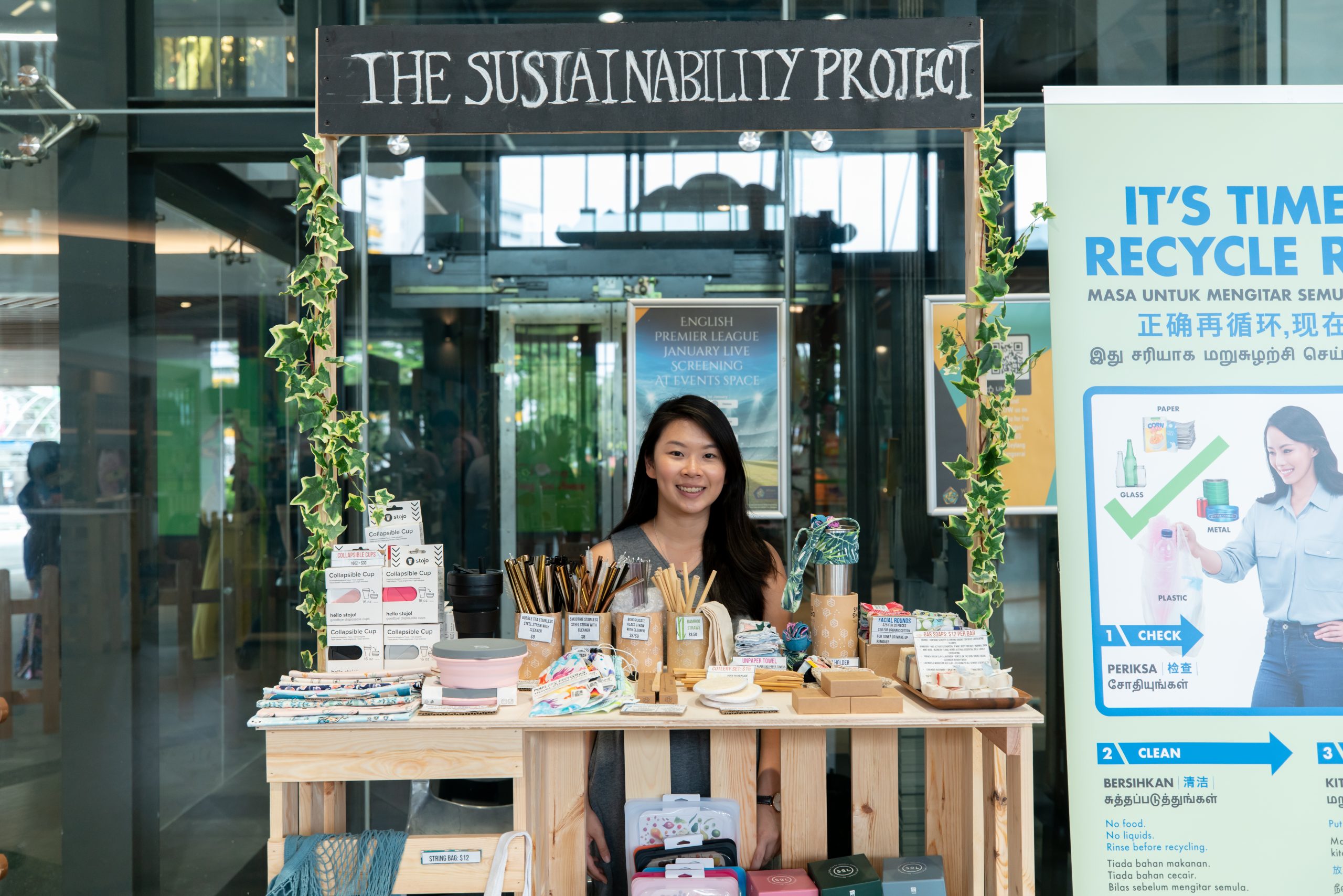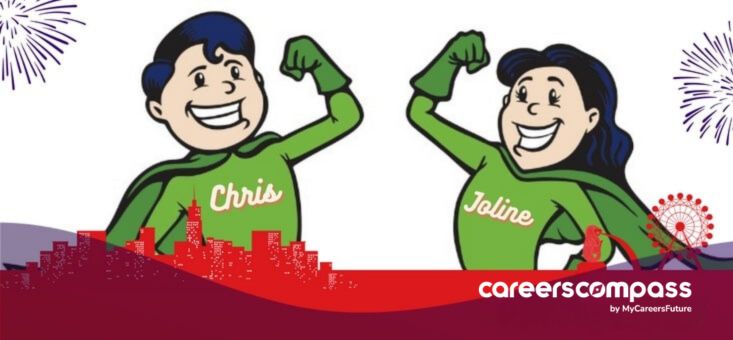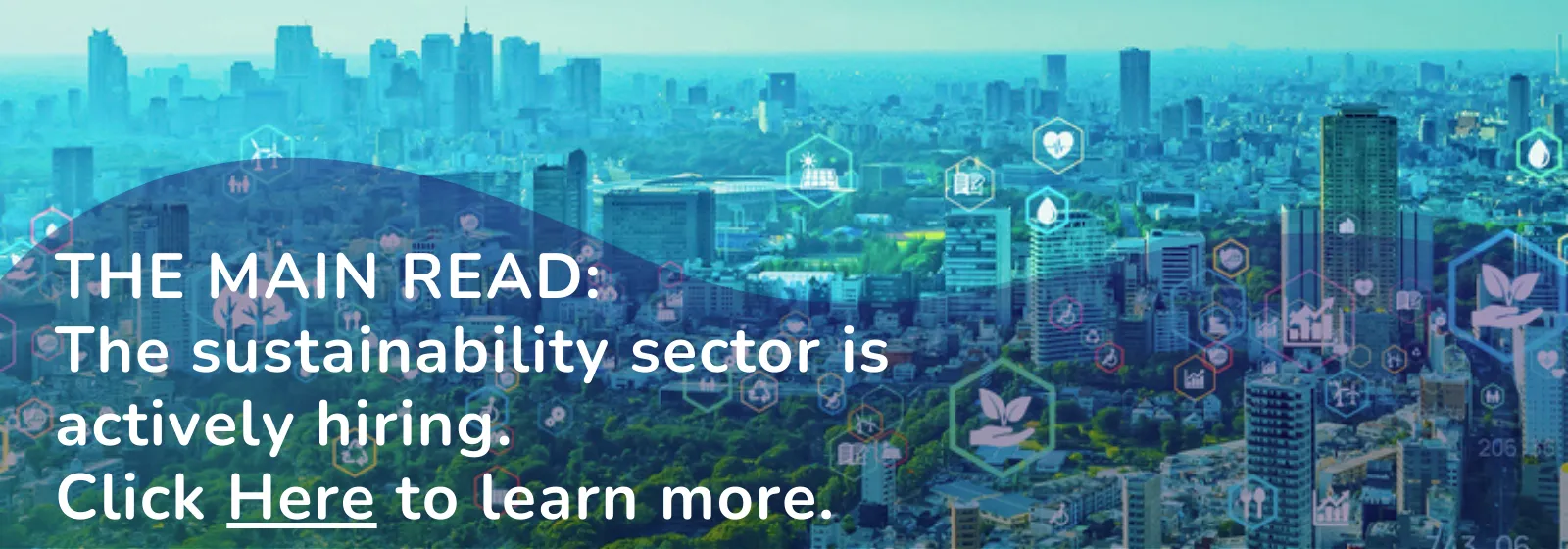When defining career success, the things that come to the minds of most Singaporeans would be job titles, promotions, degrees, and great salaries, just to name a few.
But of course, not everyone thinks the same way. They are the outliers. The few who define career success beyond just mere personal gain. The ones who make it their mission to make the world better for everyone.
Sounds too good to be true? Meet Christopher Leow and Joline Tang.
Mr Green Fingers: Christopher Leow
As an urban farmer in Singapore, Chris has spent the last decade working from “Farm to Table”, exploring all areas of the food system. Extremely passionate about sustainable food systems, he enjoys working around sustainable food production and sustainable food consumption.
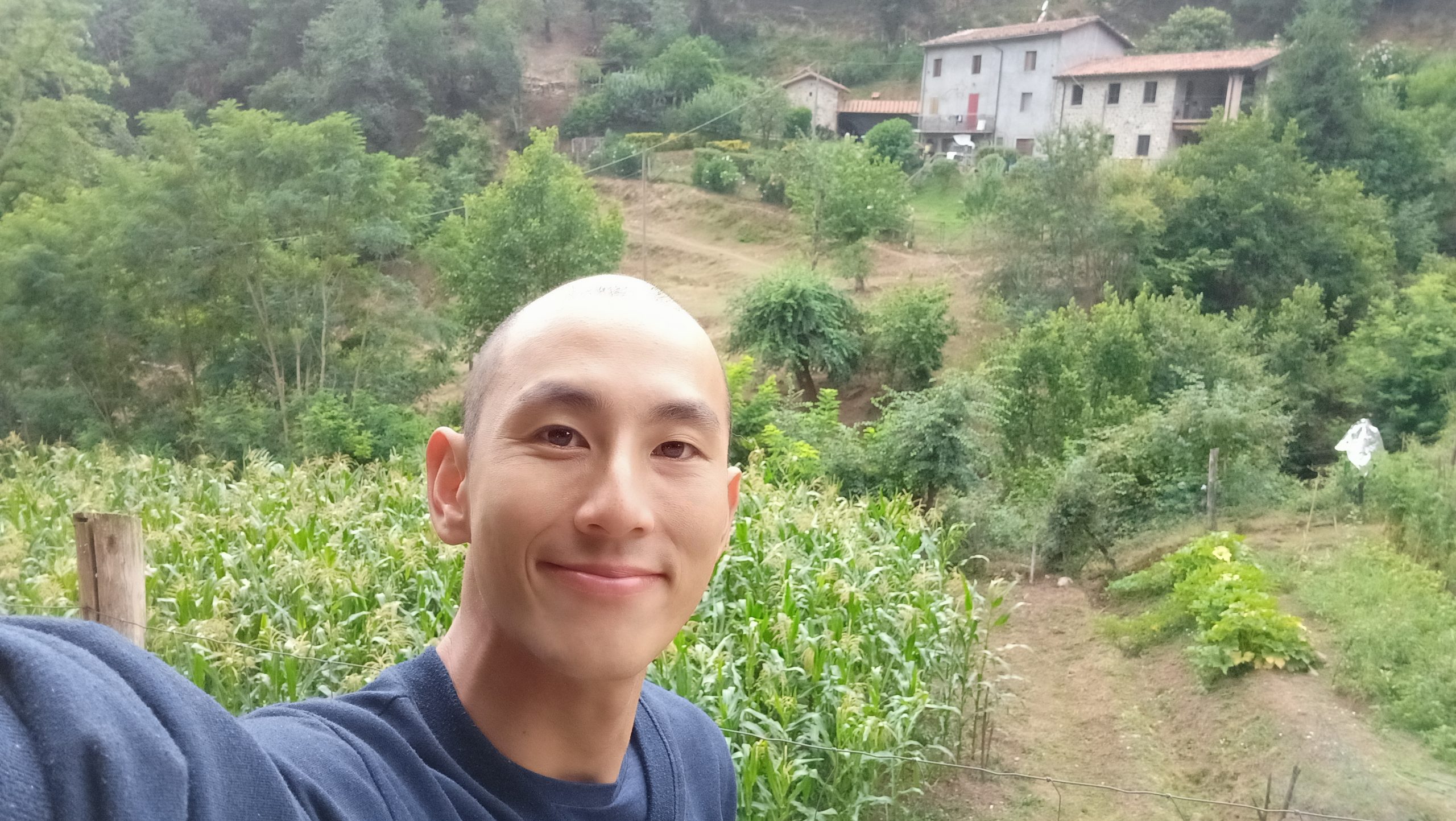
In his own words:
“We need to change what and how we eat, and the way we grow food, to reduce the impact of our current agriculture system.”
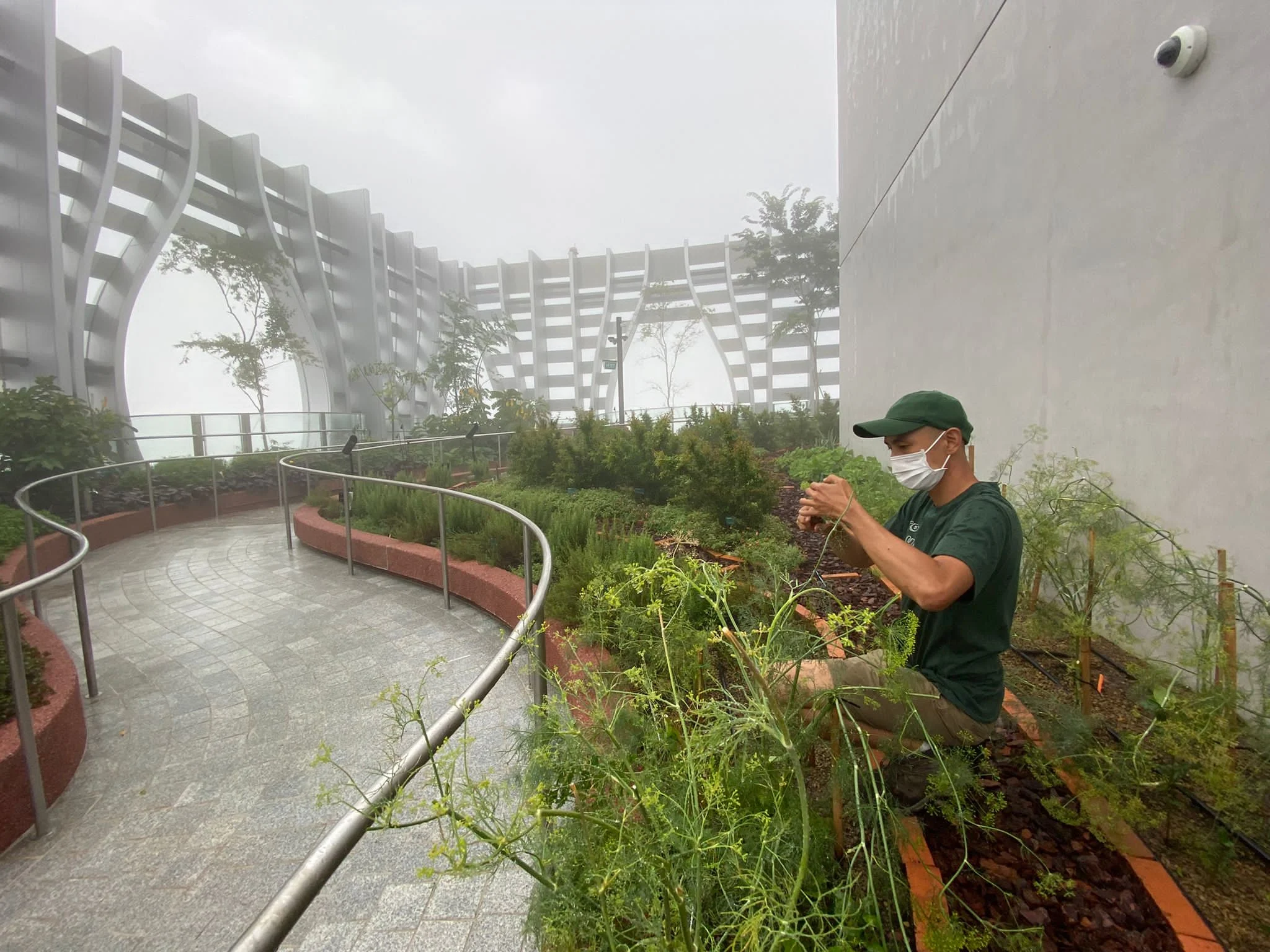
Chris currently works for Edible Garden City, as the head farmer of the CapitaSpring farm. Away from dirt and soil, he is also an adjunct lecturer at Republic Polytechnic teaching the Urban Agriculture Technology diploma course.
Eco Woman: Joline Tang
Combining her passion for the environment and strong entrepreneurial spirit, Joline is the founder of The Sustainability Project. This Singapore-based business aims to encourage and inspire the adoption of a low or zero waste lifestyle. Through her business platform, she hopes to spread the message of caring for planet Earth.
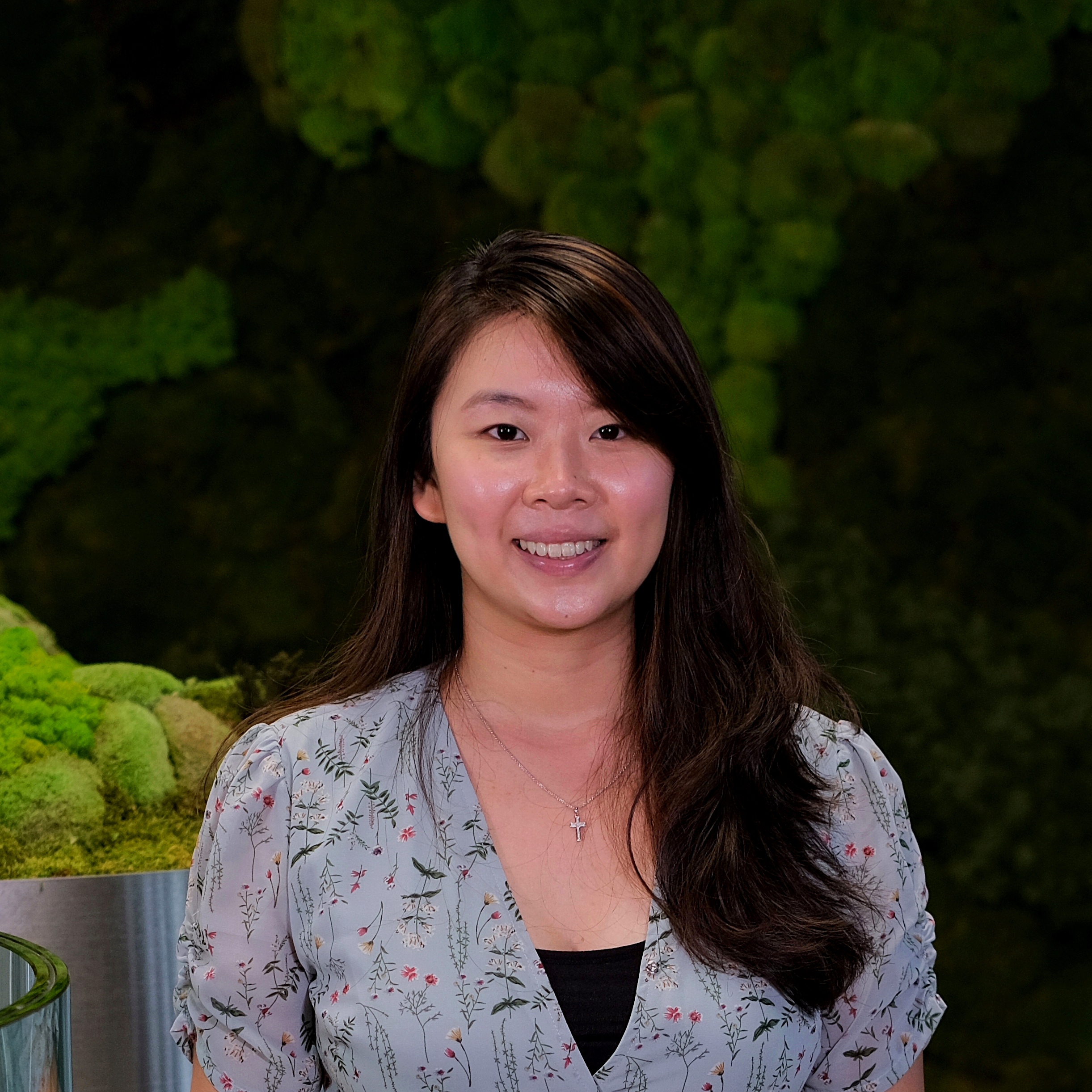
In her own words:
“Our mission is to educate what sustainability means and to inspire people to take small steps, do good and be changemakers in the community.”
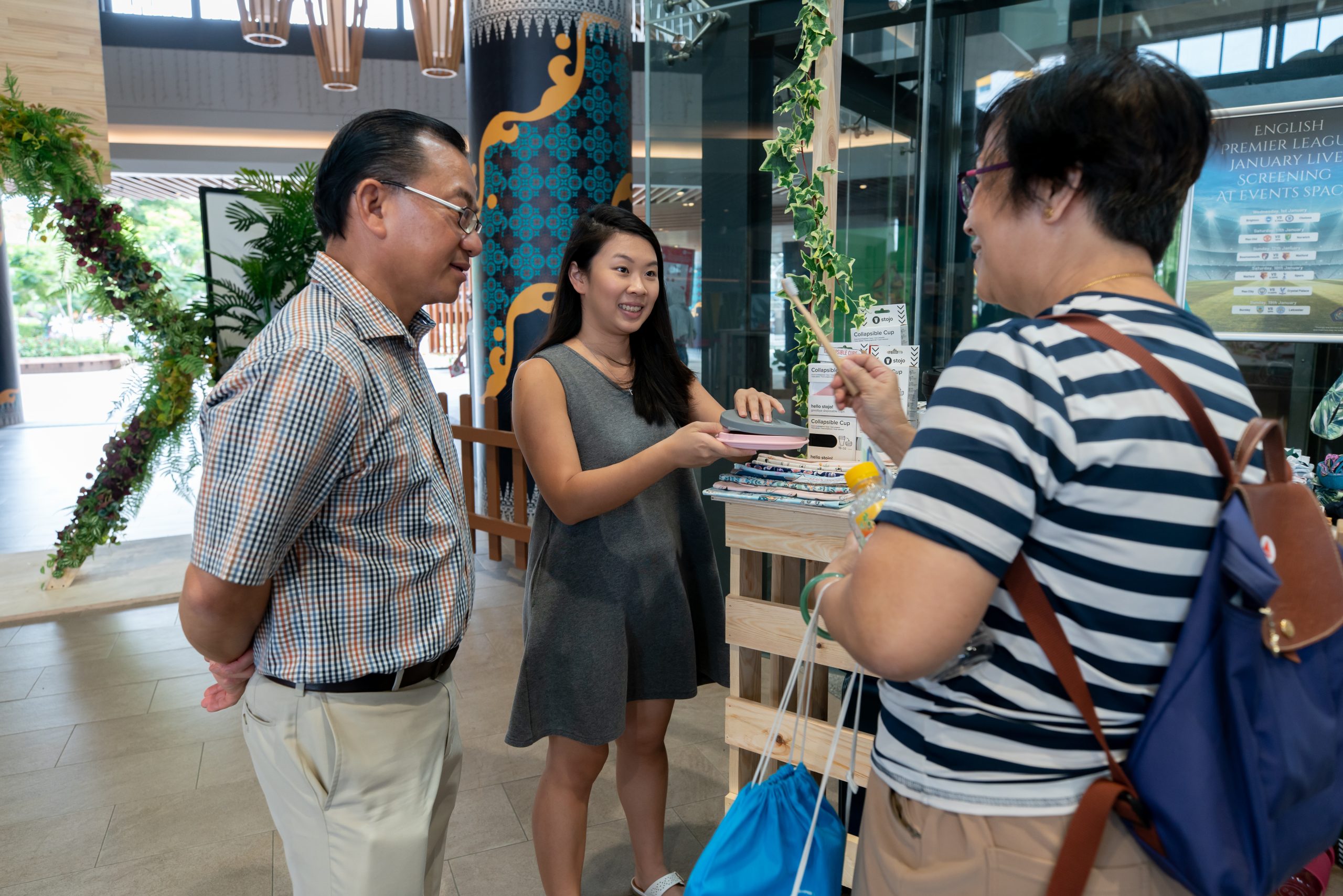
If you’re familiar with Captain Planet, popular in the 80s to 90s, Chris and Joline are Singapore’s version of the environmental-saving cartoon hero. The only difference? They are saving the planet in real life.
We caught up with these busy green heroes to bring you, their stories.
What were you working as previously and why did you choose to work at your current workplace?
Chris: After graduating from university, I got involved in various food and beverage start-ups, including opening my own cafe. After a few years of doing that, I felt that I was not thriving and no longer enjoy working in a cafe. Hence, I decided to backpack around the world to explore more about the journey of food from its source.
Joline: I was already involved in the sustainability industry through my previous work experience in various firms. I was an accountant in a start-up that sold biodegradable and compostable partyware and assisted two accounting firms in sustainability reporting.
Read More: Passion VS Pragmatism: Guide to Choosing a Career Path for Young Jobseekers
Is a degree in the Sciences (botany, food science, etc) a must to pursue a career in the green sector?
Chris: I think having an attitude of willingness and a desire to continually learn is more important, as one naturally finds ways to seek out knowledge in the platforms that suits their own learning style.
Today, there are many online courses to tap into. Perhaps, having a relevant degree will be helpful, but it is not a necessity. I was trained as an aerospace engineer, and I applied my technical knowledge in the design and building of farms.
Working in the green sector will require a wide spectrum of skill sets, and whatever working experiences you have will value add to working in the sustainability sector. Personally, I upskilled myself through a mixture of on-the-job training and online courses or videos.
Joline: Definitely not. I have a degree in accountancy but what I’m doing right now is not much related to what I studied. I believe that if one is genuinely passionate about something, one will find ways and means to gain more knowledge about it.
What got you interested in sustainability? Was there a turning point?
Chris: During my backpacking days, I volunteered at farms in Australia and the States. The turning point was living off-grid in a fully self-sufficient property in New South Wales, Australia. All the family’s food, energy and water were self-sustaining and did not rely on the grid or global and external inputs.
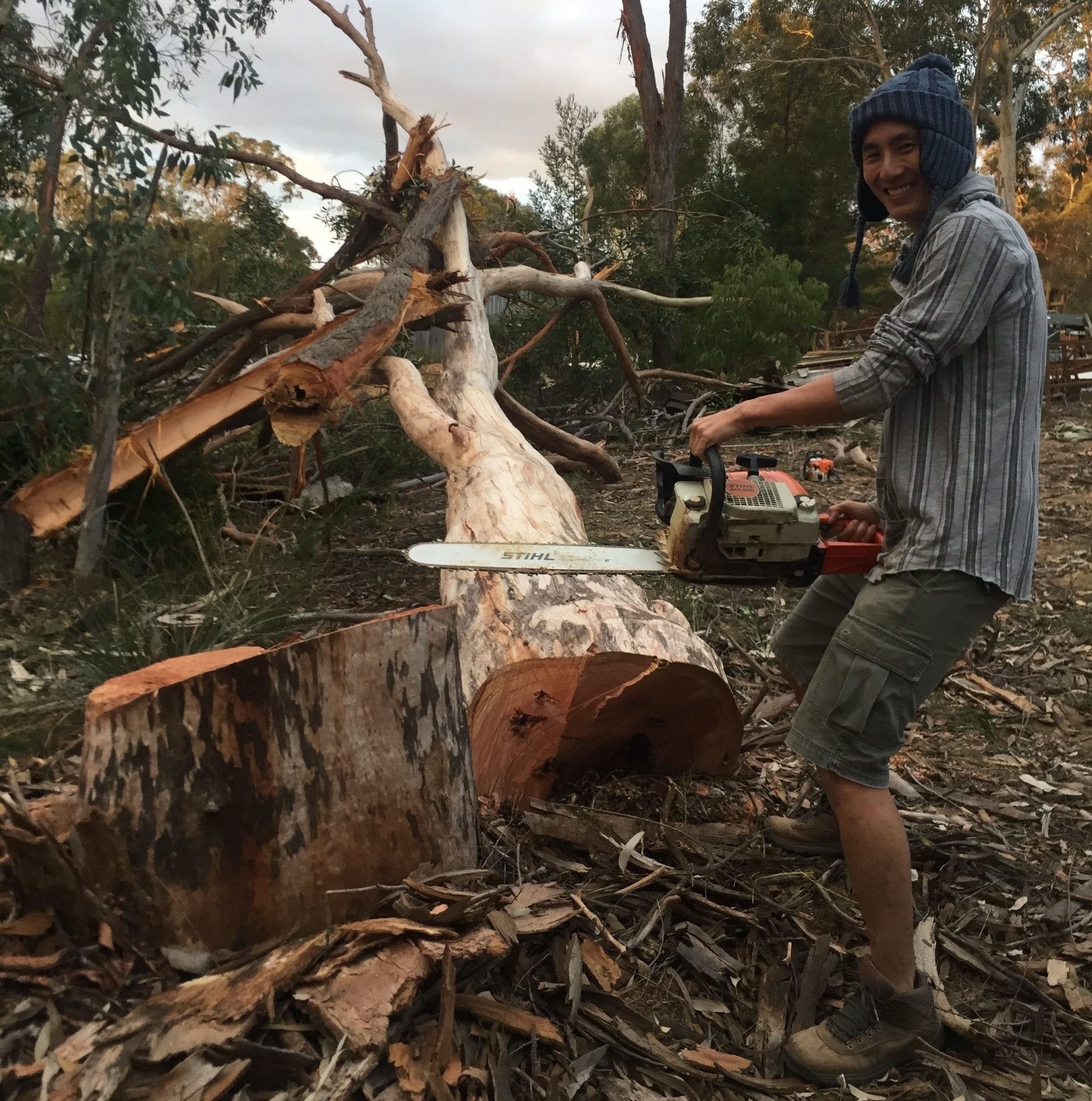
This experience really made me rethink my lifestyle as a city dweller. It inspired me to take the values I had learnt from them and apply them to our city’s context.
Joline: I have always been interested in sustainability since 2011 when I was a student! I believe the turning point was when I saw my friends writing only on one side of the paper. I started to collect papers with unused sides from my friends for my own usage. I also began to adopt recycling at home. Since then, I have gone further with my sustainability journey.
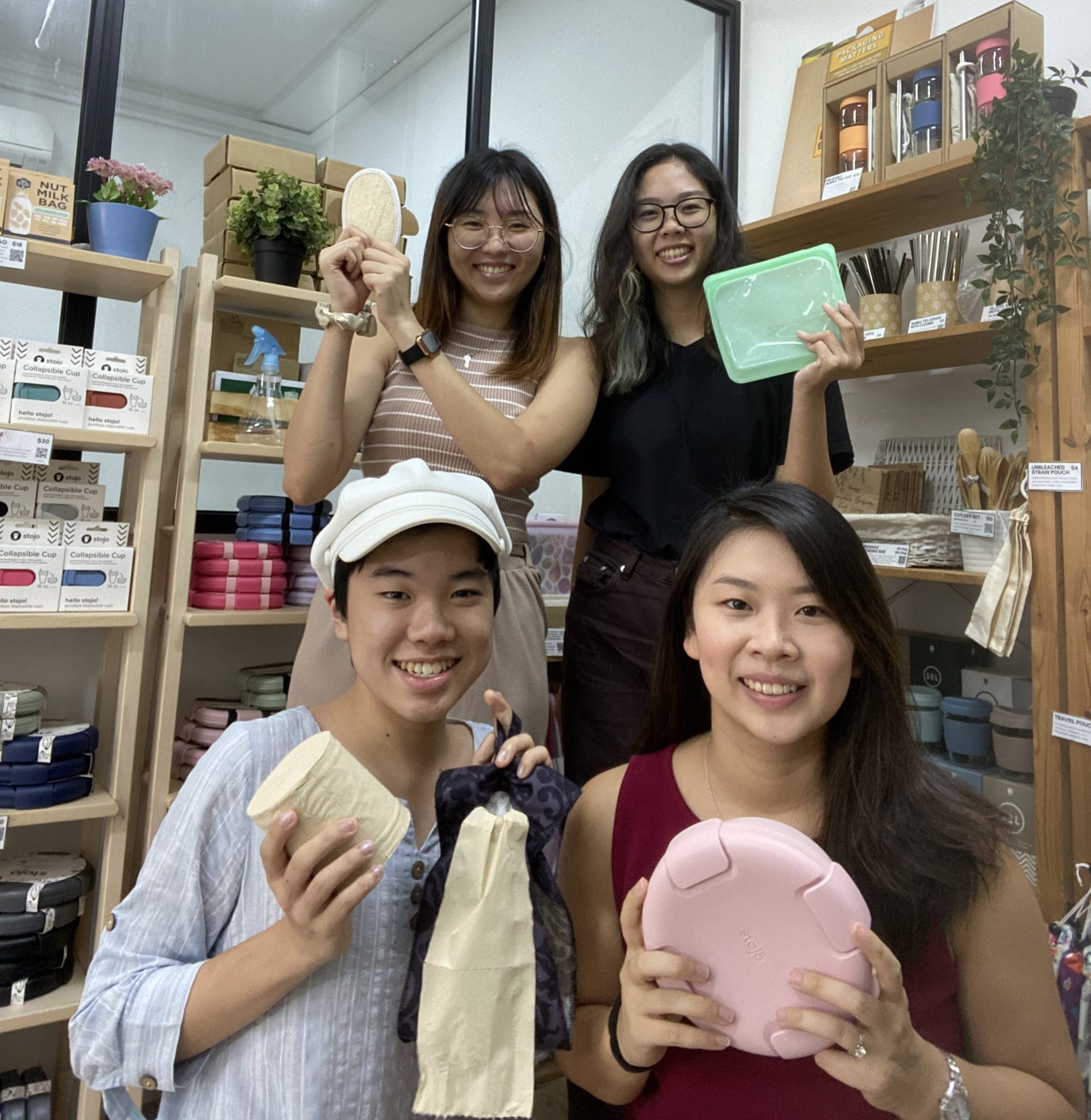
What does a sustainable lifestyle mean for you personally?
Chris: A sustainable lifestyle is about being aware of the resources one utilises such as water and energy, and finding ways to recycle them, or, if not possible, using them effectively. It also means sustainability for mental well-being and for relationships. Finding a balance and harmony between the different parts of my life is key.
Joline: It means being a conscious consumer who understands what sustainability really entails. It is not about buying the most eco-friendly item but really about re-evaluating your lifestyle to prevent unnecessary purchases. Think carefully before buying new things.
What are some of the challenges you face when advocating for sustainability in Singapore?
Chris: Singapore has such well-oiled systems such as waste collection, or food supply chains. This is a double-edged sword, as it removes us from understanding its complexities, and disconnects us from the processes.
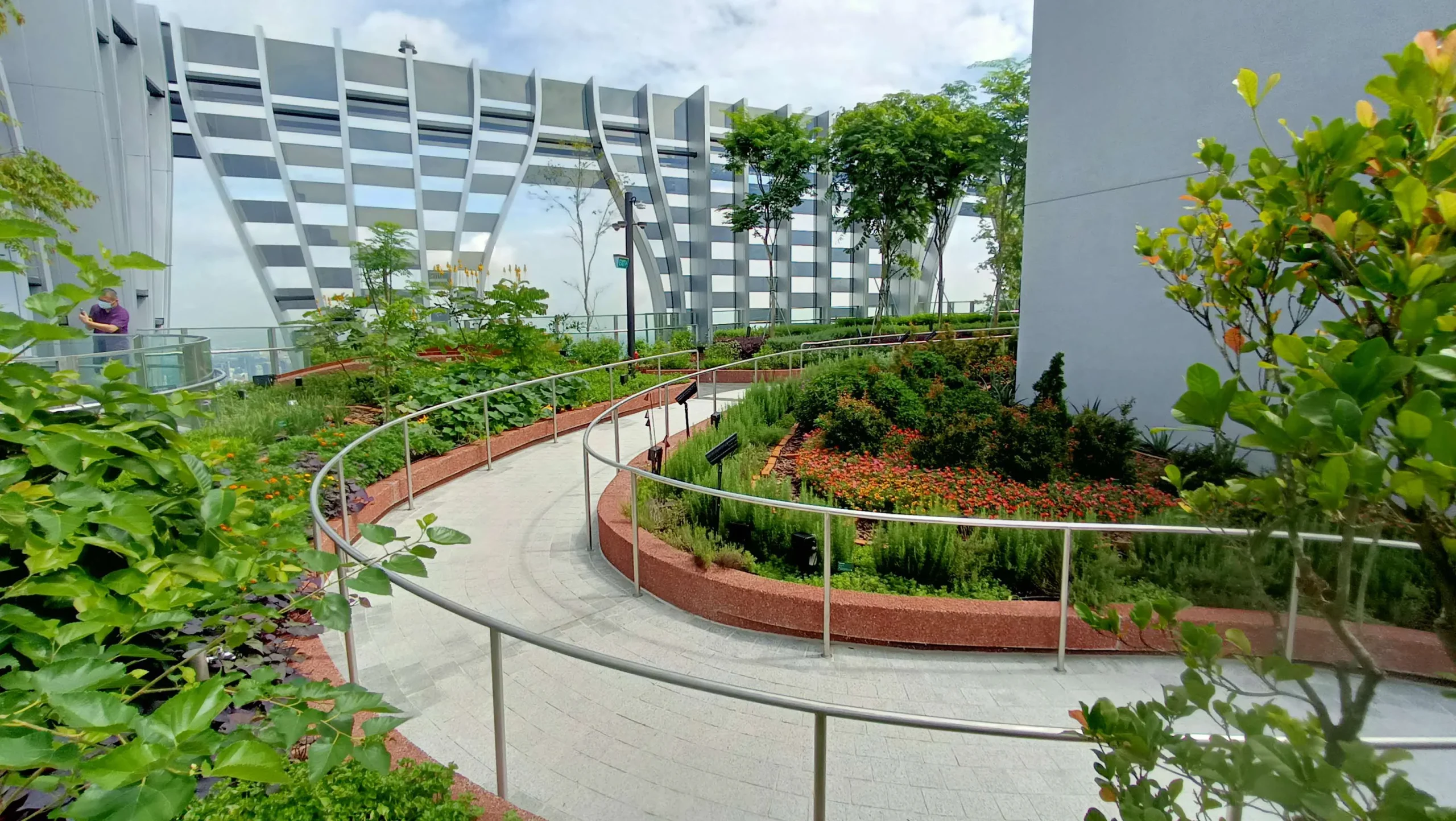
This is especially difficult in inculcating new habits such as sorting waste into different streams, as we are so used to just throwing everything into one bin. I think individually we need to be in an environment where we take more responsibility and collective action towards our daily habits.
Joline: To be honest, it is always about ensuring financial stability for our small business, especially with COVID-19! Also, some people assume that we do not need to charge for the services we provided. But to really have sustained impact, we need to ensure what we do is financially viable too.
Sometimes it can get quite tiring when we are trying our best to push for sustainability, especially when there is news on the impacts of climate change but we do not see people caring much to make a change.
It is important to acknowledge that the weight of saving the world is not on your shoulders. Sometimes, it is hard to rest because you know time is of the essence and if we delay any longer, the world will end up being a worse place to live in.
Ultimately, I learned that I need to take care of myself as well and have a balance of rest and work!
What are some quick and easy things that the average Singaporean can do to make a change?
Chris: We can try growing our own food at home. In a small way, we can reduce some imports and become more self-sufficient. One of the simplest things to grow is sprouts, which only require seeds, water, and a bowl. You don’t even require a garden space or pots.
Joline: We should reduce or stop impulse buying, and where possible, bring our own bags, bottles, cups, and containers!
Could you give us an overview of your company’s approach toward sustainability?
Chris: The growing methods used in the farms include using a food forest method which grows a diversity of food crops, whilst sequestering carbon in the plants. This method of growing food is more water and energy resource effective than conventional farms and some indoor farms.
Joline: We focus more on zero waste, so we try not to incur any form of waste. Our products are minimally packaged or have no packaging. We only use used boxes to send out our parcels. We have a series of products called imperfects that are products that have some visual flaws but are truly functional. We upcycle cloth to make certain products too!
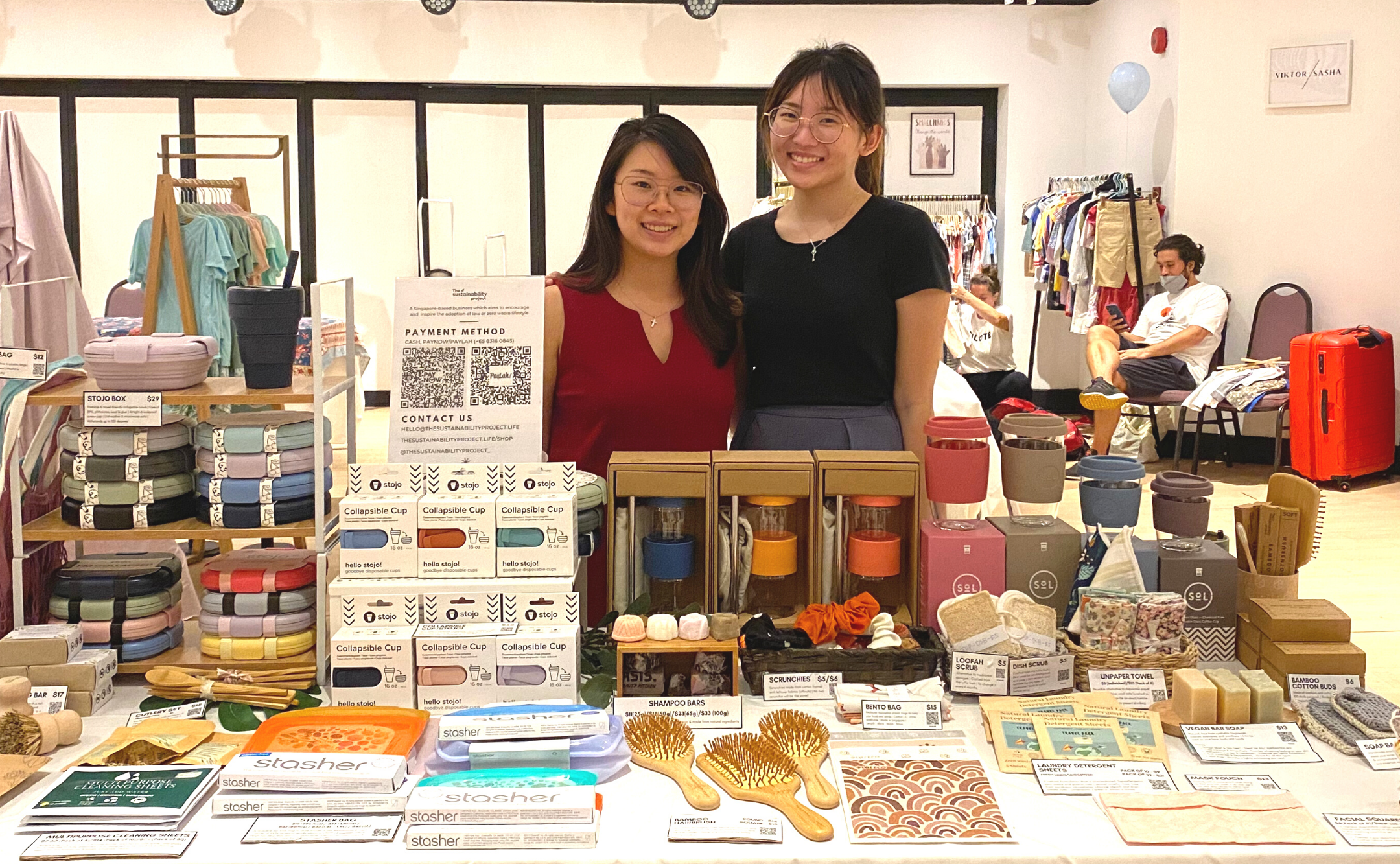
In line with Singapore Green Plan 2030, do you think the green sector is a good place to build a career?
Chris: I believe so, going green is a new way of life. Now is the perfect time to work in this sector.
Joline: To me, definitely! I think it is essential knowledge for humanity’s survival and there will be many more systemic changes coming in our near future.
What is your wish for Singapore?
Chris: I wish that Singapore can turn the current challenges like climate change and food insecurity into opportunities for innovation and creativity that make a positive impact on the world.
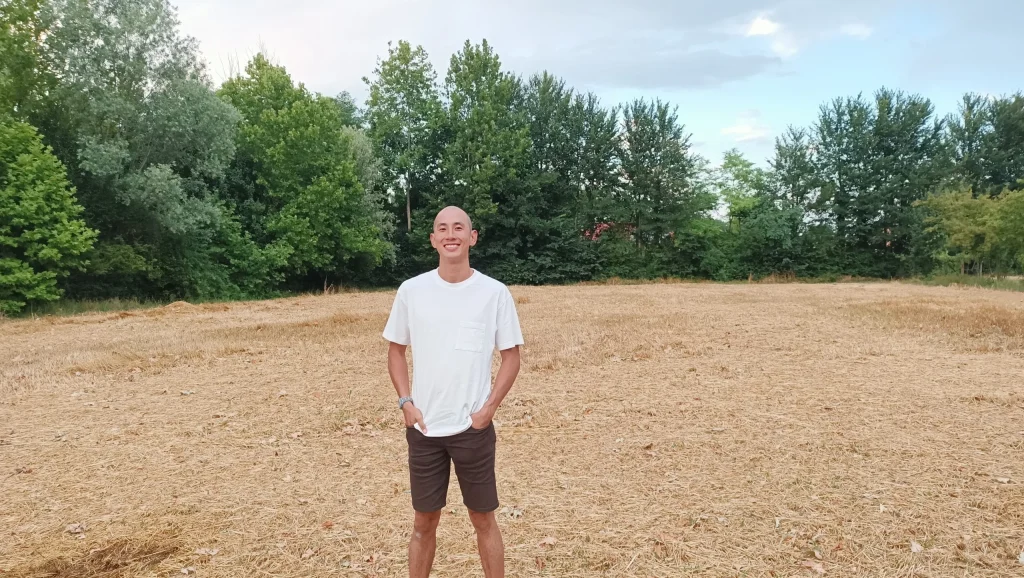
Joline: I wish that everyone will become advocates of the environment, care for it and place it as a priority in their daily life. We only have one planet Earth, and we need to act before we regret it in life.
